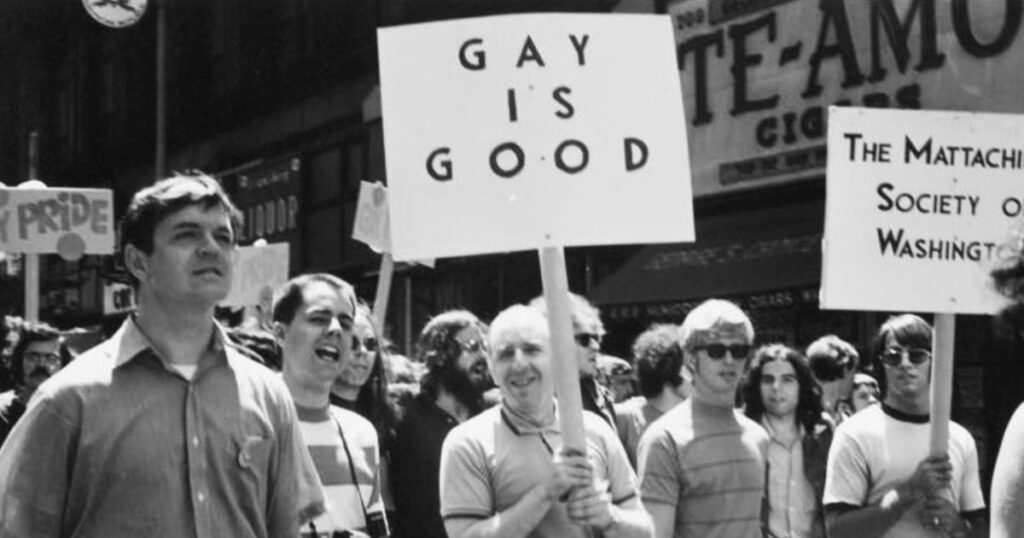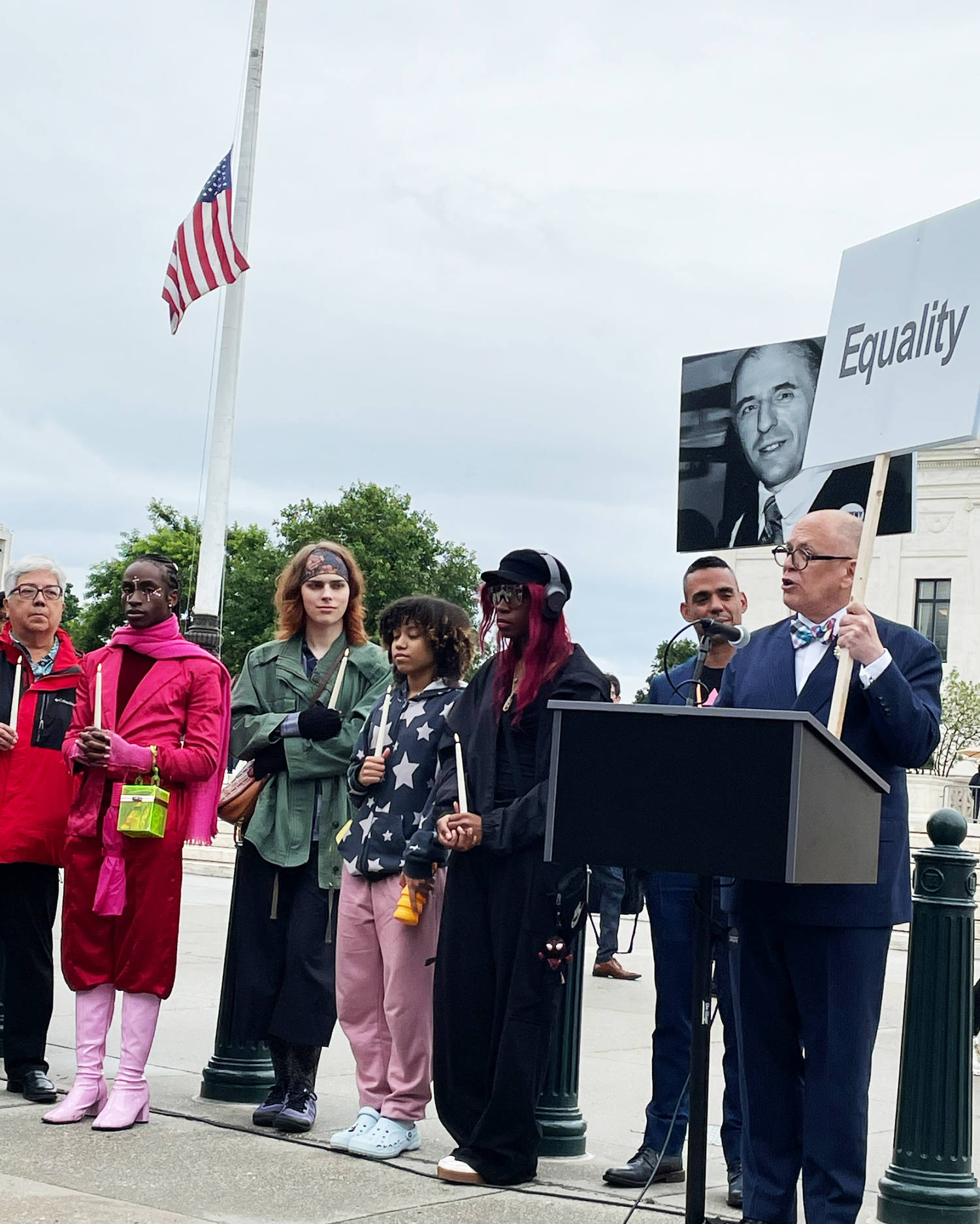

After he lost two federal court battles, Kameny filed his petition with the nation’s highest court despite having no legal experience. In his petition, he did something revolutionary: He didn’t deny he was gay; instead, he challenged long-held social beliefs that there was something inherently wrong with same-sex attraction.
“Petitioner asserts, flatly, unequivocally, and absolutely uncompromisingly, that homosexuality … is not only not immoral,” Kameny wrote, “but that, for those choosing voluntarily to engage in homosexual acts, such acts are moral in a real and positive sense, and are good, right, and desirable, socially and personally.”
Even though his petition was denied, it would be the defining moment of Kameny’s life. The focus and surgical exactitude that qualified him to guide a missile through the stars would from then on be applied to guiding an unwilling society to the idea that gay Americans were, in every way, deserving of equal rights and respect under the law.
“Frank Kameny didn’t necessarily set out to be an activist,” said Jim Obergefell, the named plaintiff in the Supreme Court’s 2015 landmark same-sex marriage ruling, Obergefell v. Hodges. “Frank Kameny saw injustice. He was experiencing unfair treatment, and he reached that point where he was no longer willing to accept it, and he took action, and it was a scary thing for him to do to start these, these marches in public, to demand equality and fairness.”
From pickets to pride marches
In 1961, the year the high court rejected his petition, Kameny and fellow activist Jack Nichols founded the Washington, D.C., chapter of the Mattachine Society, one of the first gay rights organizations in the country.
At a time when homosexual acts were punished by law and homophobia was the norm, Kameny proclaimed his identity in the streets, even in front of the White House and other government buildings.
He also persuaded other gays and lesbians to picket along with him and demand equal rights. That culminated in the Annual Reminder demonstrations outside Philadelphia’s Independence Hall, which started in 1965 and continued until 1969. Kameny enforced a strict dress code for participants at the demonstrations to create an air of respectability.
“It was 100 degrees, 100 literally; it was July the Fourth. Boiling hot,” Wicker said. “Frank insisted we all wear coats and ties and that women all wear dresses and we act as ‘ordinary Americans.’”
Longtime LGBTQ activist Martha Shelley, who also participated in the pickets, similarly loathed the dress code: “I hated having to put on a dress or skirt and march around with these pre-printed picket signs and be respectable,” she recalled.
 Latest World Breaking News Online News Portal
Latest World Breaking News Online News Portal






